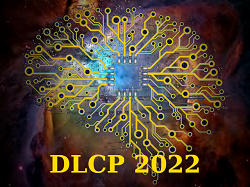Speaker
Description
Traditional linear approximation of quantum mechanical wave functions are not practically applicable for systems with more than 3 degrees of freedom due to the “the curse of dimensionality”. Indeed, the number of parameters required to describe a wave function in high-dimensional space grows exponentially with the number of degrees of freedom. Inevitably, strong model assumptions should be used when studying such systems numerically. There are, however, estimates of the complexity of a function reproduced by a deep neural network (DNN) that demonstrate the same exponential growth with respect to the number of the network layers. The number of parameters for DNN grows only linearly with the number of layers. This gives us a hope that application of DNN as an approximant for a wave function in high-dimensional space might moderate the computational requirements for reproducing such systems and make 4- or higher-dimensional systems feasible for direct numerical modeling.
We present a study of DNN approximation properties for a multi-dimensional quantum harmonic oscillator. We demonstrate that the computational resources required to reproduce the wave function depend on the dimensionality of the problem and the quantum numbers of the state. Increasing the number of hidden layers in a fully-connected direct propagation DNN we can reproduce some excited states of a multidimensional system with computational resources comparable to low-dimensional cases. Using the DNN as an approximant for a wave function paves a way to developing a new class of computational schemes for solving the Schroedinger equation for high-dimensional systems.
| Agreement to place | Participants agree to post their abstracts and presentations online at the workshop website. All materials will be placed in the form in which they were provided by the authors |
|---|

